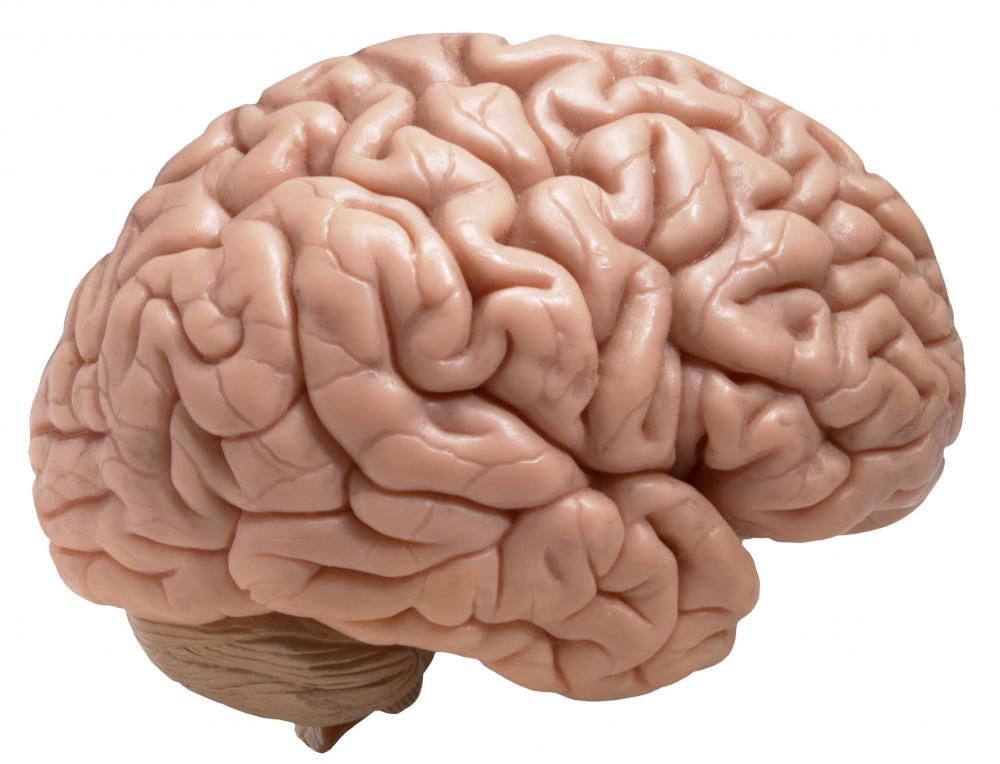At TheHealthBoard, we're committed to delivering accurate, trustworthy information. Our expert-authored content is rigorously fact-checked and sourced from credible authorities. Discover how we uphold the highest standards in providing you with reliable knowledge.
How Effective Is Domperidone for Reflux?
Studies indicate that domperidone effectively eliminates the symptoms associated with gastrointestinal reflux and the symptoms of other gastric disorders. While not licensed for use in the United States in 2011, physicians in Canada and Europe may prescribe the medication. Besides offering domperidone for reflux, the drug is used to treat gastritis, delayed gastric emptying in diabetic patients, and as an antiemetic in patients suffering from nausea and vomiting. Veterinarians originally used the compound for treating pregnant mares that developed disorders from consuming certain fungi-containing grasses.
Domperidone acts as a dopamine antagonist by blocking the neurotransmitter from attaching to the D2 and D3 receptor sites. These areas of the central nervous system also trigger nausea. Researchers do not believe that domperidone affects receptors in the brain, as the formulation does not cross mature blood brain barriers. The medication increases muscle contractions in the stomach and intestines and exhibits some effect on the function of the esophagus.

Dopamine also inhibits the release of prolactin, which is the hormone responsible for stimulating lactation. By attaching to dopamine receptors, domperdione increases the concentration of available prolactin, which increases milk production. Breastfeeding mothers often request the medication for this reason, but physicians warn that domperidone passes into breast milk and may produce adverse effects in infants. Studies indicate that when taken orally, domperidone causes irregular heart rhythms in babies.

Researchers also question the safety of domperidone in children, because of their immature central nervous systems and blood brain barriers. Some children exhibit side effects that include seizures. Even in adult patients, the risks of using domperidone for reflux include the possibility of developing serious cardiac rhythm irregularities. Documentation that accompanies the medication indicates that some patients have suffered cardiac arrest and sudden death. While researchers originally believed that only intravenous doses of the medication were responsible for the life threatening conditions, further studies have suggested otherwise.

Physicians caution that the possibility of developing serious adverse reactions increases in certain patients using domperidone for reflux treatment. Patients with an electrolyte imbalance or cardiac dysrhythmia should not take the medication. Taking domperidone for reflux while using certain anti-infective medications, grape juice, lithium, and selective serotonin reuptake inhibitors (SSRIs), increases the likelihood of adverse reactions. These substances interfere with the enzymes required by the body for proper domperidone metabolism, which increases blood levels of the medication.

The typical domperidone dosage averages 30 to 40 milligrams daily given in two to four divided doses. Patients who take the medication for antiemetic properties may receive up to 80 milligrams per day. Common side effects of taking domperidone for reflux or other gastric disorders include abdominal cramping, headaches, and menstrual irregularities. Patients who experience dizziness, confusion, or difficulty with physical coordination and speech should immediately seek medical assistance.
AS FEATURED ON:
AS FEATURED ON:




















Discuss this Article
Post your comments